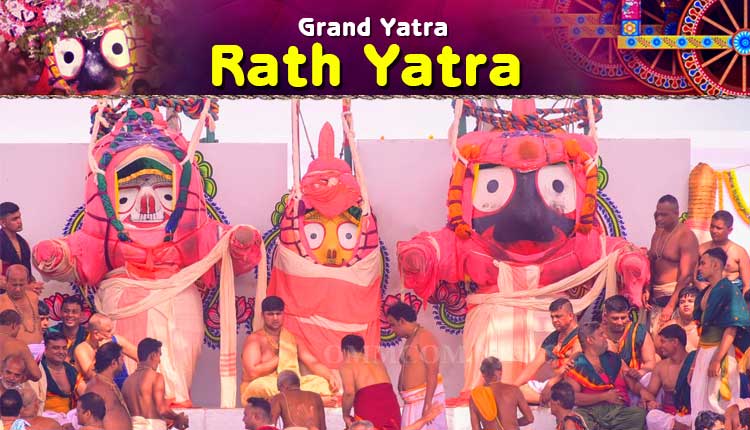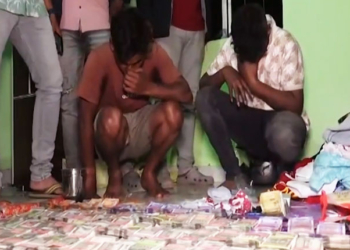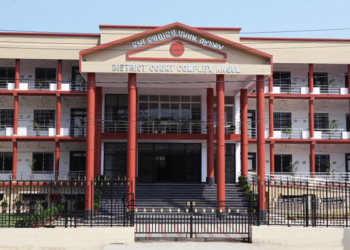Bhubaneswar: The Snana Purnima rituals of Lord Jagannath and his siblings at Puri Srimandir are underway with full spiritual fervour.
Thousands of devotees have congregated at this Holy City for Snana Purnima for which the Odisha government has made elaborate arrangements, sources revealed.
Through a ritualistic procession, early in the morning, the servitors escorted out the deities from the Ratna Simhasana. The Lords were taken to the bathing altar (Snana Mandap) at around 6 am with a Pahandi procession.
Servitors will pour 108 pots of water blended with aromatic herbs, sandal wood paste, keshar and karpur on the deities as part of the bathing rituals. The water was collected from the sacred golden well (Suna Kua) located on the temple premises.
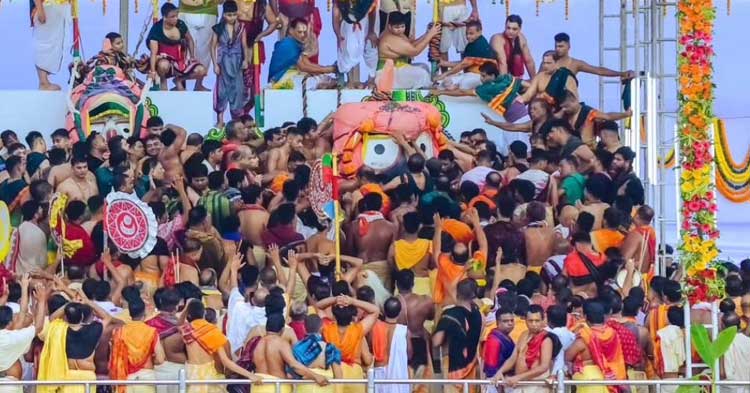
This golden well is situated near the north gate of the temple. It is pertinent to mention that the significance of the well is that its water is used only once a year during Snana Yatra.
While 35 pots of water are used for bathing Lord Jagannath, 33 pots of water for Balabhadra, 22 for Devi Subhadra and 18 pots of water for Lord Sudarshan. Thus, a total of 108 pots of water blended with aromatic herbs, sandal wood paste is used for the royal bathing ceremony.
The servitors would perform ‘Hati Besha’ (elephant attire) of the deities in the evening which will present them as the incarnation of Lord Ganesha. The Sahana Mela (open darshan) of the deities will be held from 6.30 pm onwards.
The temple administration has announced the ritual fixtures. The Pahandi Bije will be performed between 4 am and 6 am followed by the Jala Niti, puja and Snana ritual between 11.20 AM and 12.45 PM. The Hati Besha ritual will begin from 2.40 PM. The devotees can catch a glimpse of the divine appearance of the Holy Trinity from 6.30 pm to 9.30 pm.
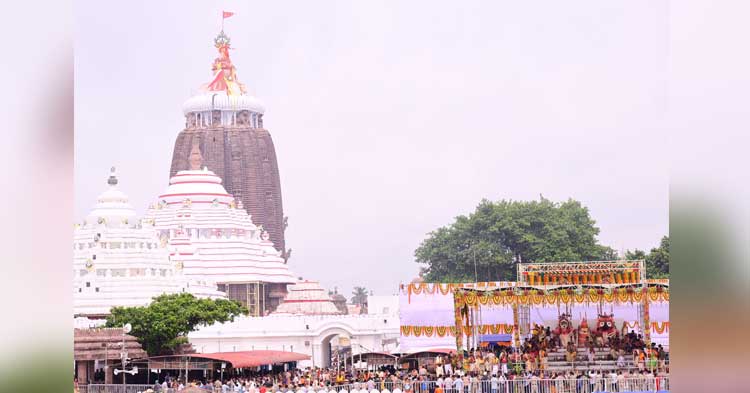
Like human beings, the Trinity will fall sick after having royal bathing. The deities will be brought to the temple and taken to a sick room or ‘Anasara Ghara’ as the deities are believed to have developed fever following the ritualistic bath. The deities would remain there out of bounds from devotees for a period of fifteen days which is known as the quarantine period or Anasara.
The quarantine period or Anasara commences from Jyestha Purnima and ends on Ashadha Amavasya.




